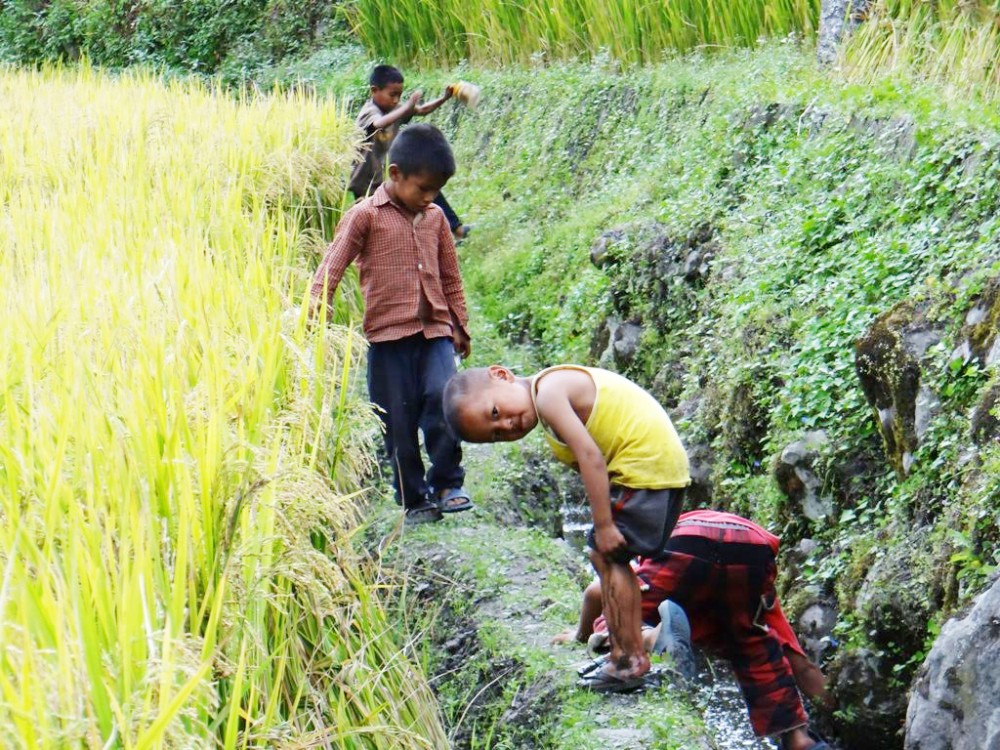illage children play out in the paddy fields in Zhavame village.

Vishü Rita Krocha
Kohima | June 26
Despite agriculture being the mainstay of Nagaland with about 70% of the population dependent on it, many of today’s young generation are clueless about farming. In the past, farming skills were traditionally passed from generation to generation but this form of learning is dissipating as most children do not come from a farming background today. An increasing number of people also move to urban areas in pursuit of different goals that include education and promising careers.
There is however good news for the young population of Nagaland, who are keen on learning and connecting themselves with nature. “NEN Summer Farm School”, an initiative of the North East Network (NEN) will bring together 20 urban based students, aged 14-16 years, at the NEN Resource Centre, Chizami Village from June 27 to July 2, 2016. The weeklong Summer Farm School is aimed at building knowledge and developing interest amongst students on sustainable food and farming systems. It will also connect students to the local environment with global issues, climate change, air pollution, food insecurity, malnutrition and ill health.
During the programme, the young students will be exposed to outdoor activities such as nature walks, field work in jhum, terrace and homestead gardens, apart from lessons that will be drawn from indoor activities comprising of lecture, quiz, role play, arts, film and story-telling. The participating students will learn from a resource team comprising of custodian farmers, story tellers, scientists and development workers.
Stressing on the importance of Farm Schools, Seno Tsuhah, Project Team Leader, North East Network (NEN), Nagaland, said that it would create a learning opportunity for young people to interact with the natural world- soil, water, seeds, forests, etc while pointing out that through this kind of in-situ learning programme, they will be exposed to sustainable food & ecological farming systems.
She is hopeful that at least 50% out of the 20 students will be from urban areas while informing that till last week, 3 guardians/parents from Kohima and Dimapur have asked the details of the programme. So far, a student from Guwahati has confirmed for participation in the programme while a few more students from Guwahati are likely to join.
The North East Network plans to make it a yearly activity at least for the next two years and by the third year, it will be bringing out a training manual. In this regard, Seno Tsuhah hoped that the training manual would further be used and replicated by academic and social institutions.
Expressing deep concern on the need to preserve the environment, she also identified the ‘alienation of young people from their natural environment, culture and traditional knowledge systems’ as one of the biggest environmental challenges confronting the Naga society. An avid activist for sustainable development, she also highlighted on the challenges of “rampant hunting, unsustainable use of natural resources- land use, timber logging etc, waste pollution, weakening of local institutions, people’s pursuit for a development model that is cash/profit oriented over sustainability of lives and livelihood, strong emphasis and support on cash crop plantations over food crops, which she termed as ‘insensitive environment’ and increased vulnerabilities of people to natural disasters, especially farmers.”
Mention may be made here that North East Network, Chizami has been instrumental in initiating several programmes on issues of environment, one of which includes the Hoolock Gibbon Eco Club, founded during December 2010 in collaboration with Dusty Foot Productions and Go Wild.
The Club, comprising of children aged between 10-14 years had, since its inception been learning about wildlife and environment issues through interactive classroom activities, photography, writing and field based learning. A couple of years back, the children had also generated valuable documentation of birds, butterflies, moths and amphibians from the area.






